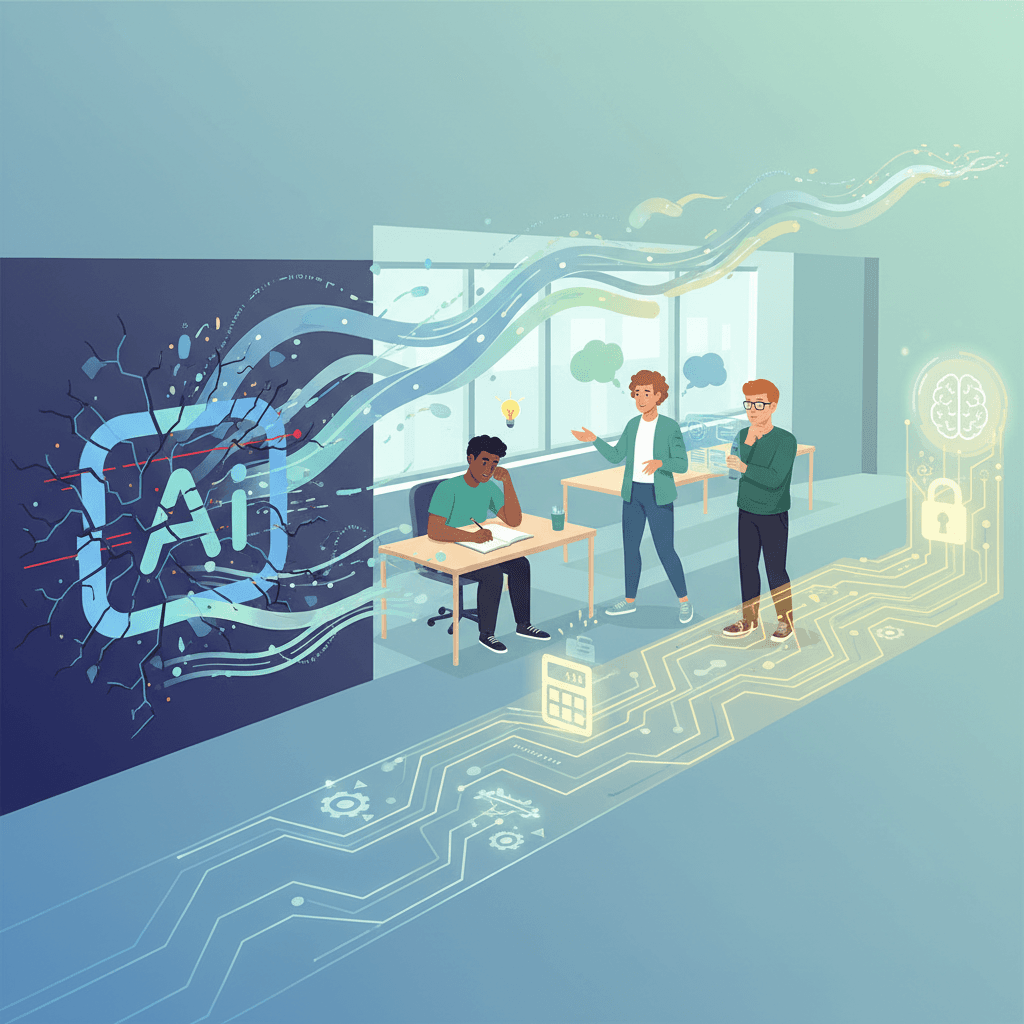AI Pioneer Karpathy Declares Homework AI War Lost, Urges Education Rethink
Andrej Karpathy declares AI homework detection a lost cause, urging schools to adapt assessments and integrate AI responsibly.
November 26, 2025

Prominent artificial intelligence researcher Andrej Karpathy has declared the educational "war" on AI-generated homework a lost cause, urging schools to abandon their attempts to police its use. The former OpenAI founding member and Tesla executive argues that detecting AI involvement in out-of-class assignments is practically impossible, and that educational institutions must fundamentally rethink their approach to assessment in the age of advanced generative AI. Karpathy's stance adds a significant voice to a growing debate among educators, technologists, and policymakers about how to maintain academic integrity while preparing students for a future where AI is an omnipresent tool. He contends that rather than fighting an unwinnable battle with detection, the focus must shift towards verifying knowledge through methods that cannot be easily outsourced to a machine, such as proctored, in-class assessments.
At the core of Karpathy's assertion is the profound ineffectiveness and inherent flaws of AI detection tools. He has publicly stated that all AI detectors are unreliable, easily bypassed, and ultimately "doomed to fail."[1] This perspective is supported by a growing body of evidence showing that these tools produce significant numbers of both false positives and false negatives.[2] Some studies have even highlighted that such software can be discriminatory, more frequently flagging text written by non-native English speakers as AI-generated.[3][2] The technology behind generative AI is evolving at a pace that far outstrips the development of detection methods.[4] As AI models become more sophisticated, they can mimic human writing styles with greater nuance, blend human and AI-authored text seamlessly, and even replicate a student's specific handwriting.[4][5] This reality forces a difficult conclusion: educators must assume that any work completed outside of a supervised environment could have involved AI assistance.[6][1] Therefore, continuing to invest resources and trust in policing technologies is a futile endeavor that can lead to false accusations and undermine student trust.[3]
Instead of focusing on prohibition and detection, Karpathy advocates for a strategic adaptation in educational practices. He compares the integration of AI to the adoption of the calculator in mathematics education; while the tool speeds up work, students are still taught the fundamental principles of arithmetic to understand the underlying processes.[7][8] Similarly, he argues that students should be taught how to use AI effectively and ethically, as it is a powerful tool that is "here to stay."[7][1] To ensure that students are still mastering core concepts and developing critical thinking skills, he proposes that the majority of grading should shift to in-class, physically monitored work.[6][1] This approach ensures that assessments genuinely reflect a student's own knowledge and abilities, unassisted by advanced technology. This pivot would require a significant restructuring of curricula and assessment strategies, moving away from a heavy reliance on take-home assignments and towards more interactive, supervised forms of evaluation.[6]
The broader implications of this debate extend far beyond academic integrity, touching on the fundamental skills students need for the future. Proponents of integrating AI into learning argue that it can offer personalized support, help students brainstorm ideas, and improve efficiency.[9][10] When used as a research or revision tool, AI can act as a powerful assistant, summarizing complex topics and helping students clarify their writing.[9] However, critics raise significant concerns about the potential downsides of unchecked AI use. An over-reliance on these tools could stifle the development of critical thinking, problem-solving, and writing skills, as students may be tempted to outsource the cognitive effort required for learning.[9][11][10][12] There are also valid concerns about the accuracy of AI-generated content, which can sometimes be outdated, biased, or factually incorrect, a phenomenon often referred to as "hallucination."[6][9][13] This places a greater onus on students to critically evaluate and verify the information they receive from AI, a skill that itself needs to be taught.
Ultimately, Karpathy's declaration signals a critical inflection point for the education sector and the AI industry. As AI's capabilities continue to expand, educational institutions face a choice: they can continue a reactive and likely unsuccessful campaign to prohibit its use in homework, or they can proactively reshape learning environments to leverage AI as a tool while ensuring academic rigor through new forms of assessment. This will involve creating clear policies on responsible AI use, training educators, and designing assignments that require personal insight and creativity that AI cannot easily replicate.[14][4] For the AI industry, this presents an opportunity to develop new educational technologies that move beyond simple content generation and detection to create sophisticated, in-class assessment tools and AI literacy programs. Karpathy himself is moving into this space, having launched a startup called Eureka Labs focused on the intersection of AI and education.[7][15] The consensus is clear that simply banning AI is not a viable long-term strategy; the challenge lies in thoughtfully integrating this transformative technology into the educational fabric in a way that enhances learning without compromising it.